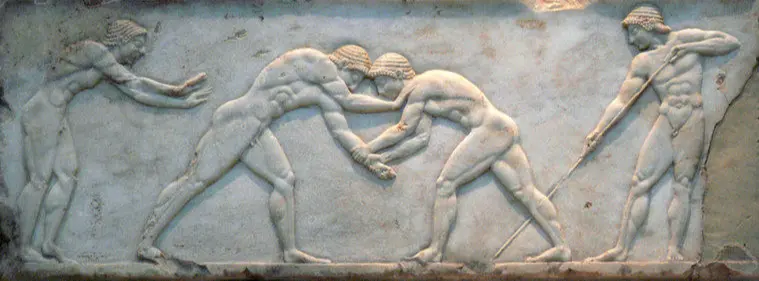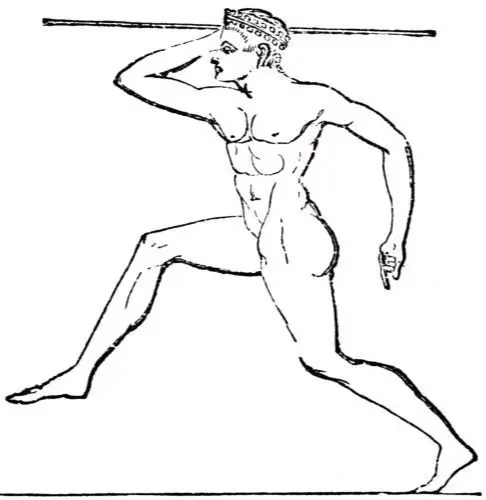
According to historical records, the first ancient Olympic Games can be traced back to 776 BC. They were dedicated to the Olympian gods and were staged on the ancient plains of Olympia. They continued for nearly 12 centuries, until Emperor Theodosius decreed in 393 A.D. that all such "pagan cults" be banned.


The Greeks that came to the Sanctuary of Zeus at Olympia shared the same religious beliefs and spoke the same language. The athletes were all male citizens of the city-states from every corner of the Greek world, coming from as far away as Iberia (Spain) in the west and the Black Sea (Turkey) in the east.
The sanctuary was named in antiquity after Mt. Olympos (see 'Did you know' in the glossary), the highest mountain in mainland Greece. In Greek mythology, Mt. Olympos was the home of the greatest of the Greek gods and goddesses. The ancient Olympic Games began in the year 776 BC, when Koroibos, a cook from the nearby city of Elis, won the stadion race, a foot race 600 feet long. The stadion track at Olympia is shown here.
According to some literary traditions, this was the only athletic event of the games for the first 13 Olympic festivals or until 724 BC. From 776 BC, the Games were held in Olympia every four years for almost 12 centuries. Contrary evidence, both literary and archaeological, suggests that the games may have existed at Olympia much earlier than this date, perhaps as early as the 10th or 9th century BC.